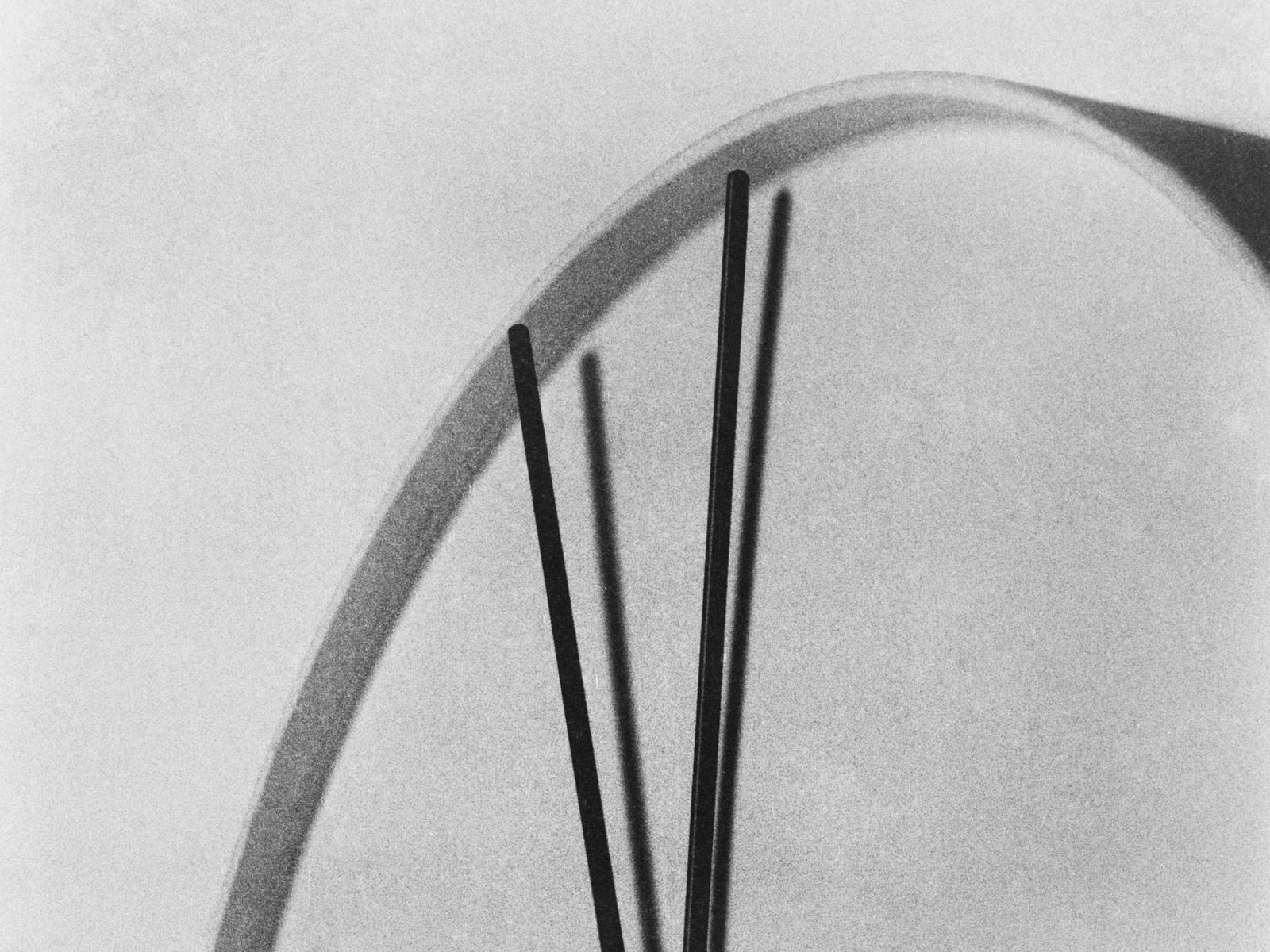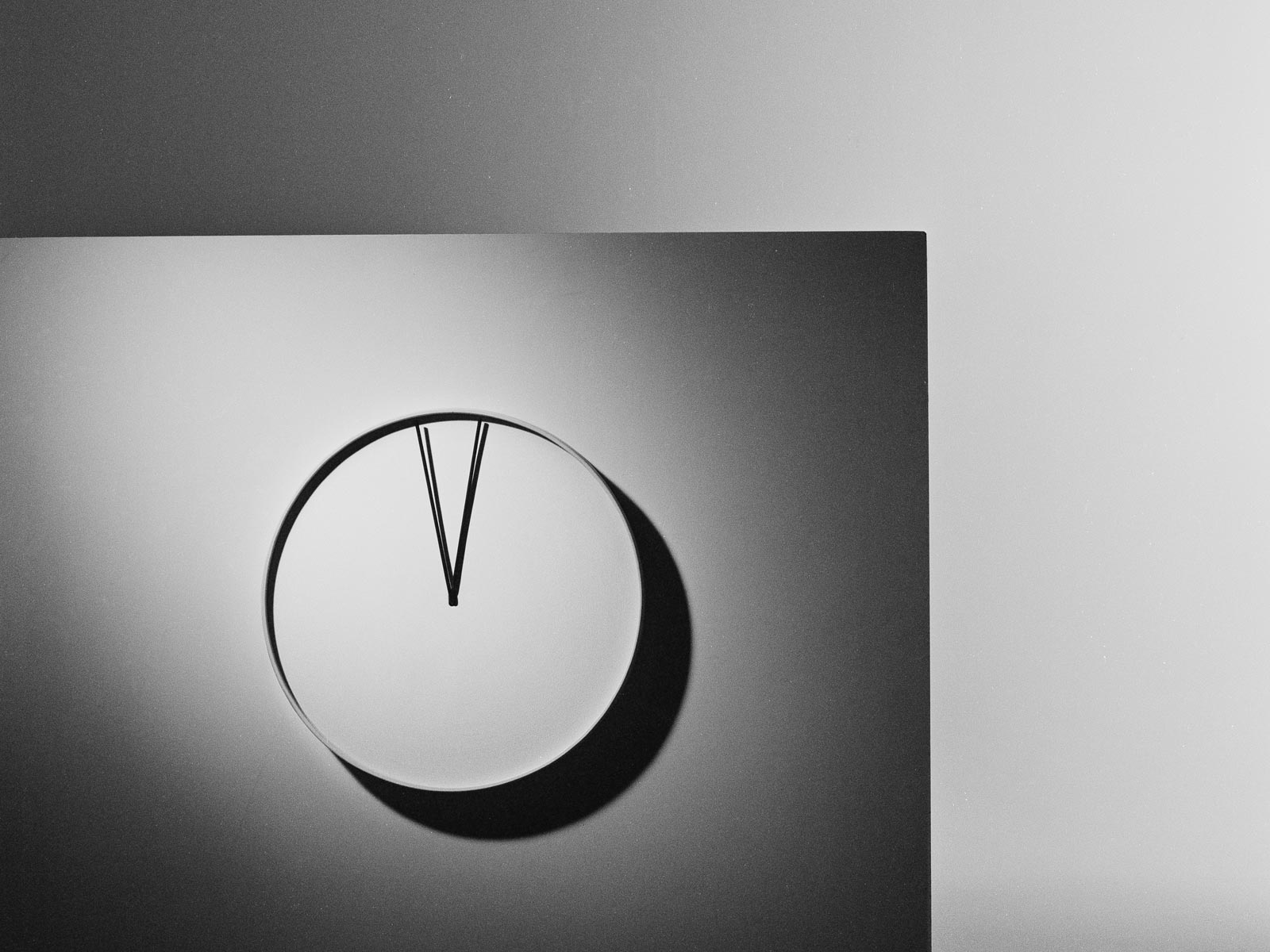Uji
A meditative wall clock that radically changes the way you can look at, and think about time.

Background
Being and Dying was a design research group that researched and investigated contemporary approaches to life and death, through experimental design. This included broad issues around health and the environment, preventative and holistic healthcare, all to challenge the notion of death existing in stark opposition to life. Crucially, it approached improving life and preparing for death from a holistic perspective, linking both states together as a unified experience.
The studio researched how current and future technology can connect with traditional and emerging health practices to create genuinely holistic products, services and experiences. It did this through a combination of trandisciplinary practices; filmmaking, product and industrial design, interaction and graphic design, collaborating with healthcare practitioners, academia and other specialists.
Aim
The aim of Uji was to explore the application of wearable technology in a non-quantitative, abstract manner. It was inspired (and named) after the Japanese Zen concept of Uji - which emphasises the inseparability and interdependence of time and existence, suggesting that each moment of time is a manifestation of all existence and vice versa. It challenges the conventional use of wearables for data collection, especially regarding health metrics. Instead of storing or quantifying health data, Uji uses technology to express the rhythm of a heartbeat in a tangible form, prompting reflection on how technology can offer new experiences without quantifying personal health information.

What we did
We integrated technology typically used in wearables for detecting heartbeats. However, unlike traditional wearables, Uji doesn’t store or quantify this data. It represents a heartbeat abstractly, allowing for a unique interaction with technology that doesn’t hinge on health analytics. This approach raises ethical questions about data ownership and privacy, especially in the context of health and wellness data collected by private companies.
Uji’s design and function prompt a broader discussion about the future of healthcare technology, the role of doctors, and the personalization of health care. With it, we were envisioning a future where health becomes highly technological, yet also anticipates a resurgence in personal, human-centric healthcare. This dichotomy highlights the growing tension between the convenience of technology and the irreplaceable value of human touch in healthcare. Uji stands as a thought-provoking commentary on the current state and potential future of wearable technology in healthcare, emphasising the need for a balance between technological advancement and maintaining personal, human connections in healthcare.